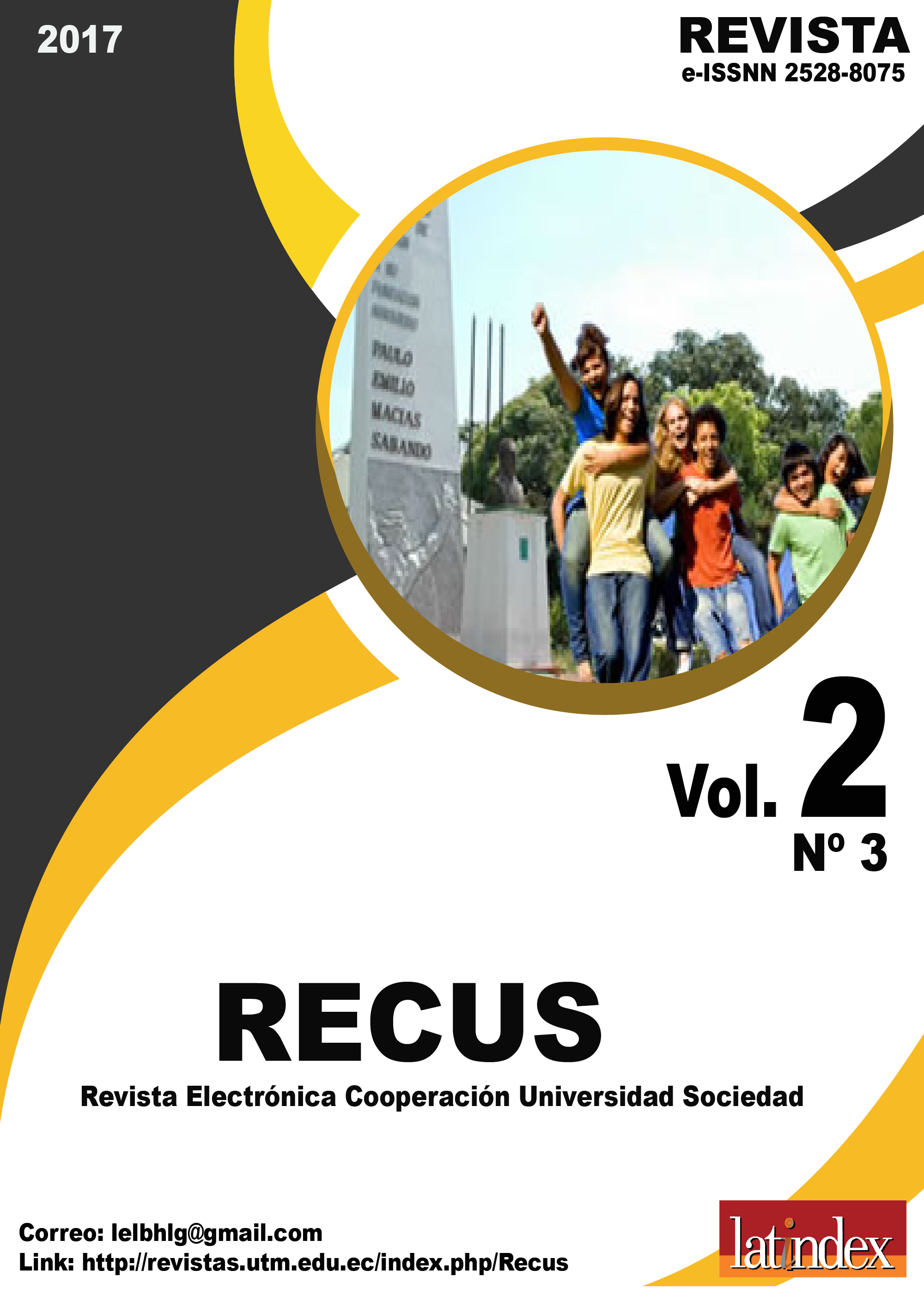Analysis of the effectiveness of the proposed net emissions avoided
DOI:
https://doi.org/10.33936/recus.v2i3.1096Keywords:
net avoided emissions, climate change, global warming, zero emissions, fossil fuels, carbonAbstract
Scientists agree that global warming exists and has direct effects on humanity and the planet. Consequently, this phenomenon influences humans and their behavior towards conservation of the planet, looking for ways in which society can reduce the emission of greenhouse gases and their impact on the environment. At international levels, many efforts have been made to create agreements and mechanisms with the aim of avoiding, mitigating or remedying environmental problems. In 2010, Ecuador presented to the Conference of Parties of the United Nations Framework Convention on Climate Change an innovative proposal called Net Avoided Emissions, which stated the creation of a market mechanism, where the nations that produced the greatest pollution would compensate economically those countries with natural resources and biodiverse ecosystems if they did not exploit their deposits. Therefore, the Ecuadorian Government promoted the Yasuní Initiative on an individual basis, which was an opportunity to encourage international cohesion with actions towards facing global warming. However, although the initiative was supported by certain countries, it was not enough to compensate the opportunity cost of exploiting the block ITT of the National Park Yasuni. This bibliographic research, through a qualitative analysis, tried to determine circumstances that influence the rejection of the proposal and the loss of its validity. At the same time, it was intended to determine elements that give greater relevance to the proposal of ENE that can serve as input for the Ecuadorian technical team that will participate in the next Conference of the Parties.
Downloads
References
Hopwood, A. G. (2009). Accounting and the environment. Accounting, Organizations and Society, 7.
IPCC. (2014). Cambio climático 2014. Informe de síntesis. Contribución de los Grupos de trabajo I, II y III al Quinto Informe de Evaluación del Grupo. Ginebra.
Krishnamurti, C., & Hoque, A. (2011). Efficiency of European emissions markets: Lessons and implications. Energy Policy, 8.
ONU. (1992). Convención Marco de las Naciones Unidas sobre el Cambio Climático. New York.
Seeberg-Elverfeldt, C., & FAO. (2010). Las posibilidades de financiación del carbono para la agricultura, la actividad forestal y otros proyectos de uso de la tierra en el contexto del pequeño agricultor. Roma.
Tudela, F., & CEPAL. (Noviembre de 2014). Negociaciones internacionales sobre cambio climático. Estado actual e implicaciones para América Latina y el Caribe. Santiago.
Vallejo, M. C., Burbano, R., Falconí, F., & Larrea, C. (2015). Leaving oil underground in Ecuador: The Yasuní-ITT initiative from a multi-criteria perspective. Ecological Economics, 11.
Warnecke, C., Wartmann, S., Höhne, N., & Blok, K. (2014). Beyond pure offsetting: Assessing options to generate Net-Mitigation-Effects in carbon market mechanisms. Energy Policy, 10.
Downloads
Published
Issue
Section
License
Copyright (c) 2017 Victor Hugo Ferrin Bravo, María de los Angeles Sánchez Merchan

This work is licensed under a Creative Commons Attribution-NonCommercial-ShareAlike 4.0 International License.


















